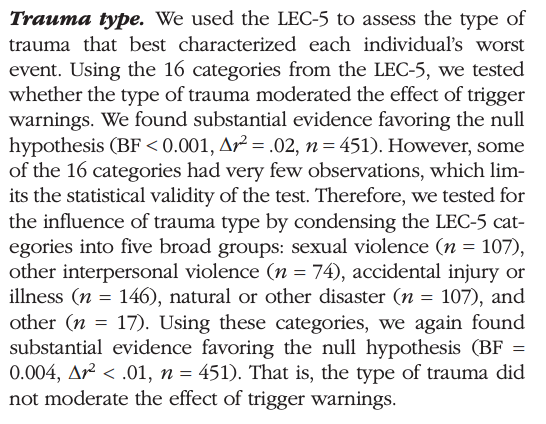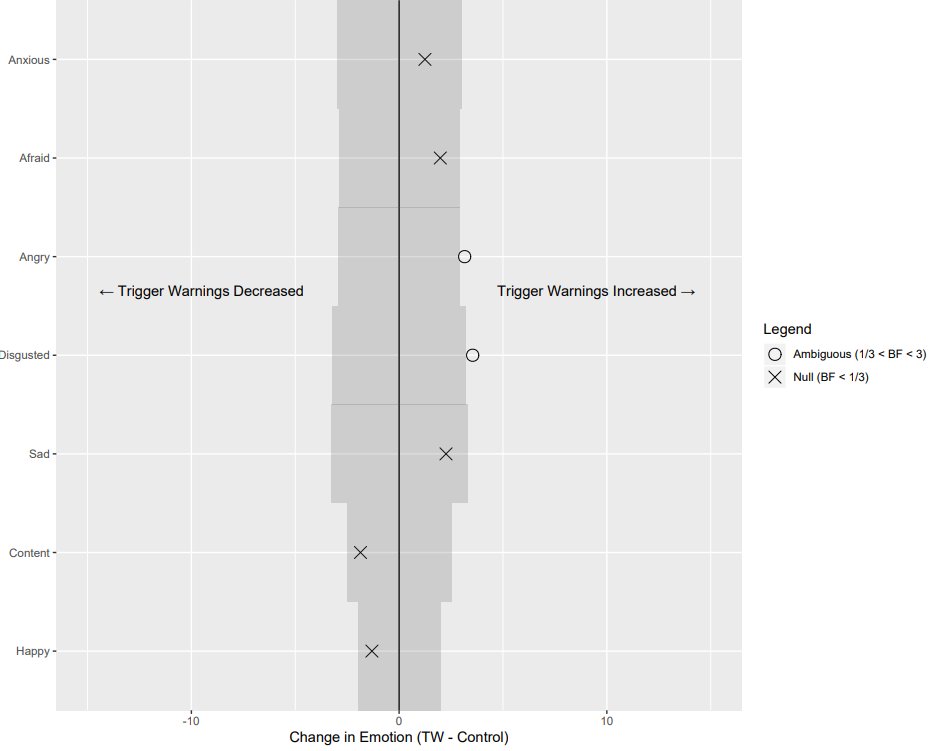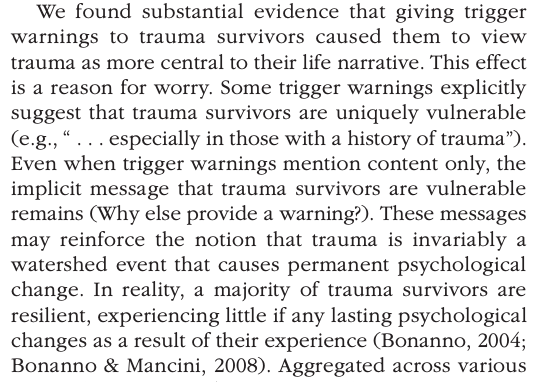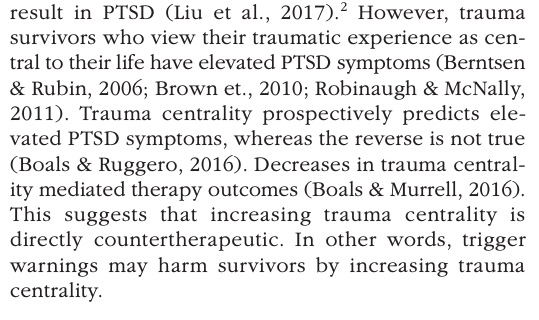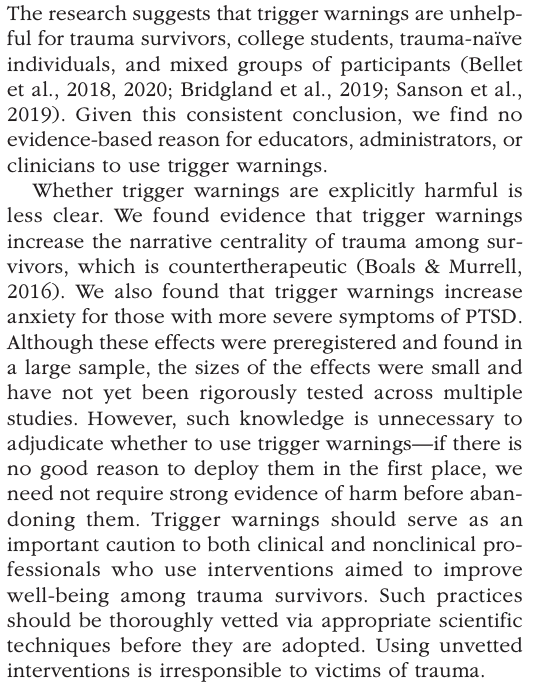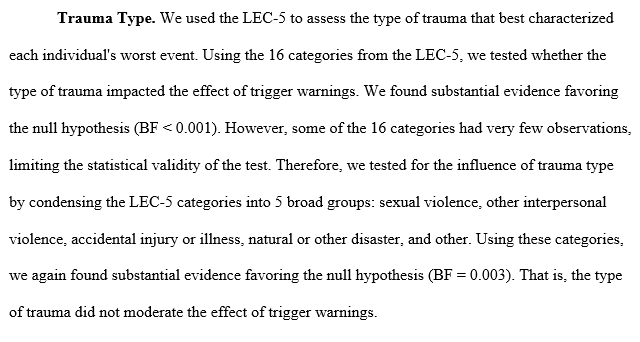You may want to reconsider your use of trigger warnings. Our new paper, just appearing in Clinical Psychological Science, suggests they may do more harm than good.
journals.sagepub.com/doi/10.1177/21…
As a note, I previously threaded about the preprint () and postprint () versions of this paper, before the published version was available.
(2) Strong Version (Avoid): trigger warnings allow people to completely avoid the triggers
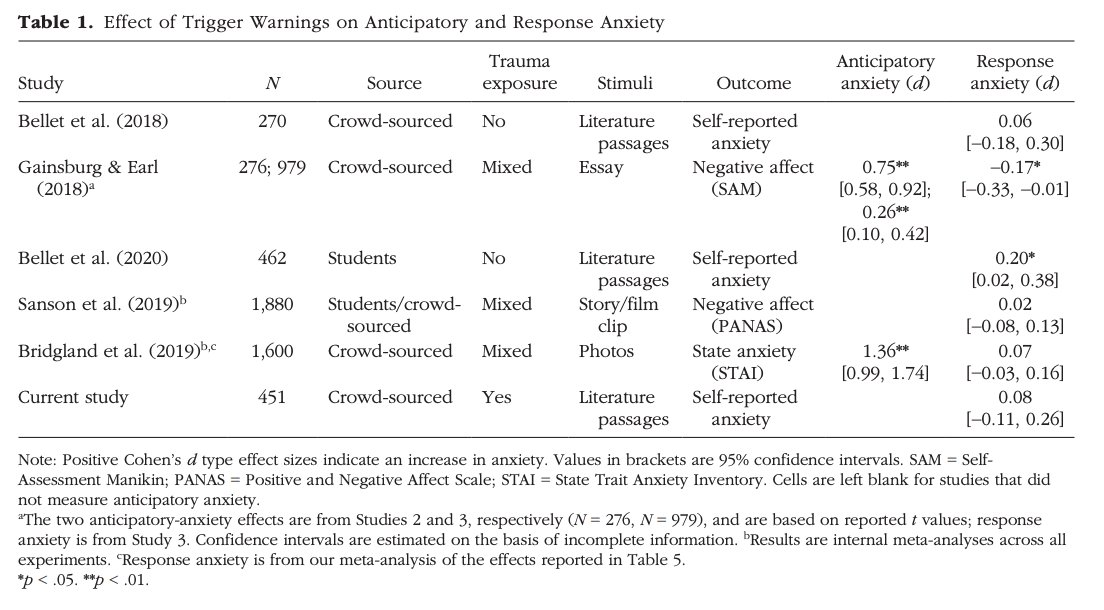
If you are interested in this topic, it's very important that you first become well-versed in the topic of emotional avoidance. verywellmind.com/ptsd-and-emoti…
ptsd.va.gov/understand/wha…
sciencedirect.com/science/articl…
I'm just very wary of policies that could encourage behavior that harms people in the long run. There is a middle ground here.


